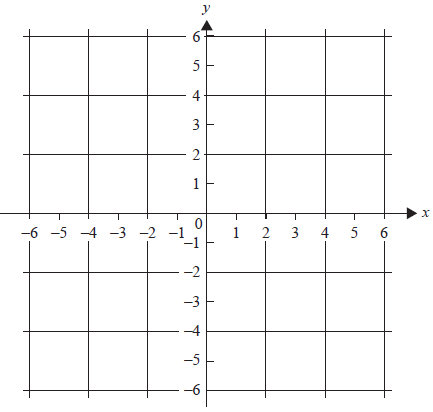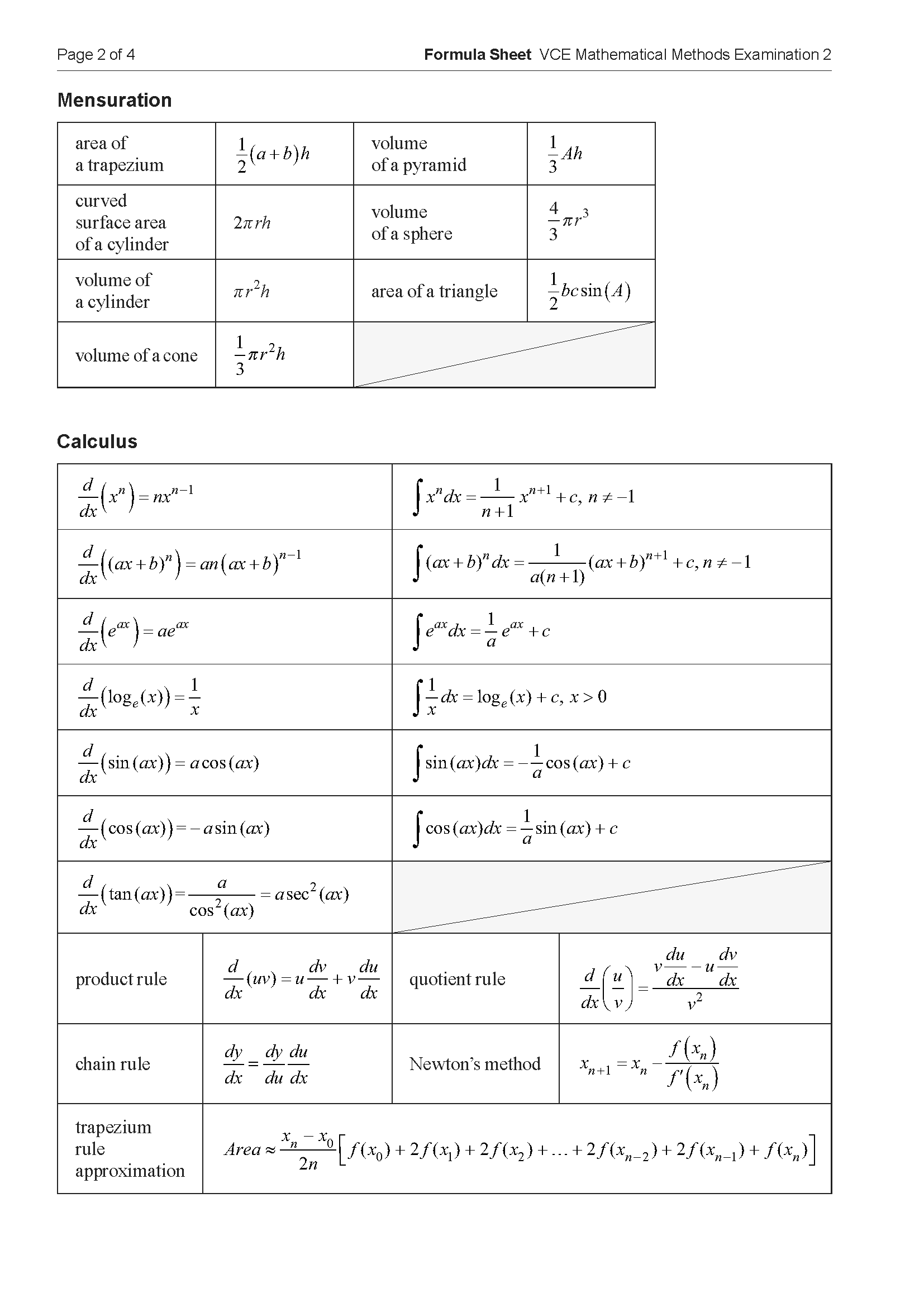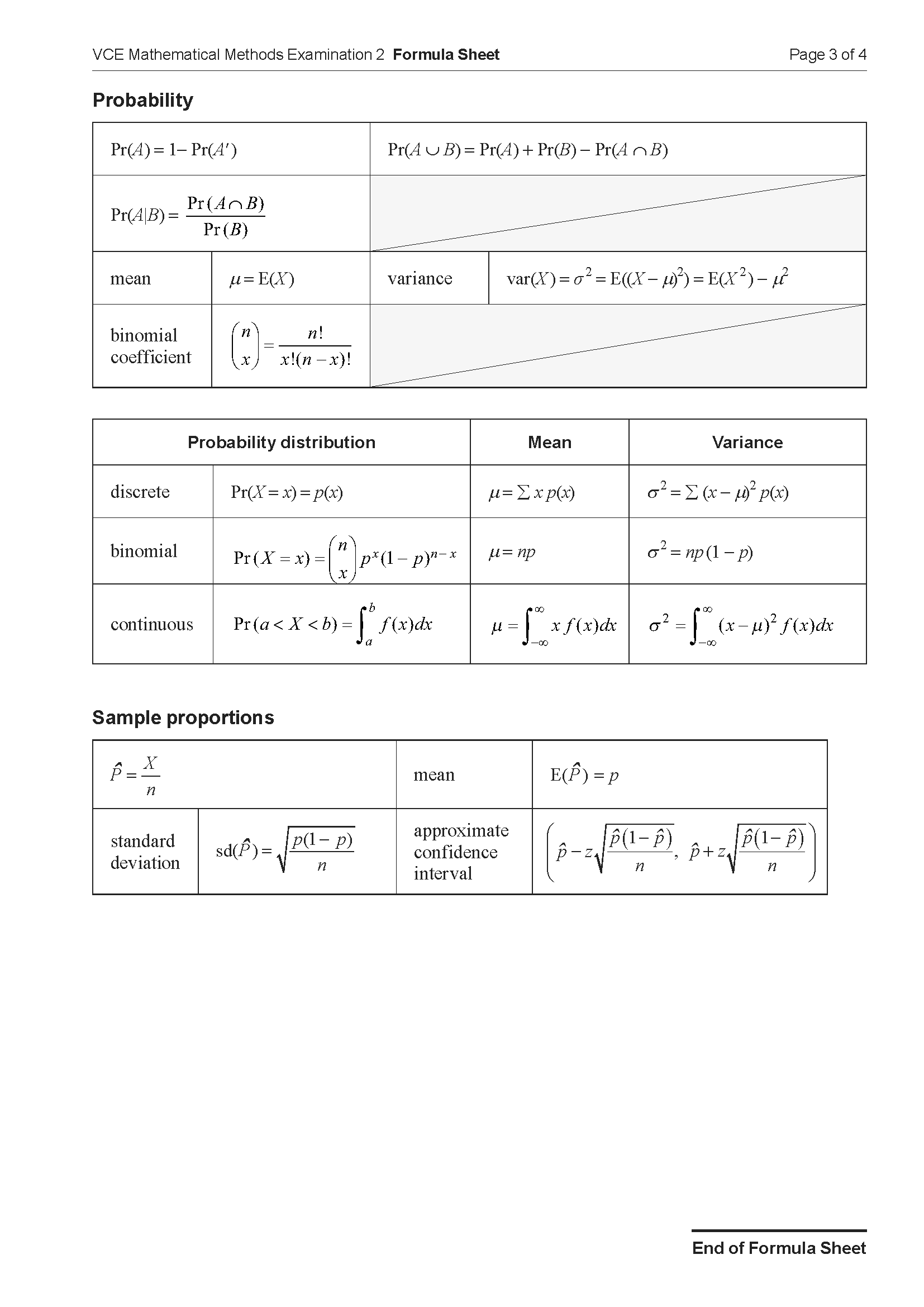VCE Maths Methods Functions Mini Test 2
Number of marks: 10
Reading time: 2 minutes
Writing time: 15 minutes
Section A – Calculator Allowed
Instructions
• Answer all questions in pencil on your Multiple-Choice Answer Sheet.
• Choose the response that is correct for the question.
• A correct answer scores 1; an incorrect answer scores 0.
• Marks will not be deducted for incorrect answers.
• No marks will be given if more than one answer is completed for any question.
• Unless otherwise indicated, the diagrams in this book are not drawn to scale.
The function \( f: (0, \infty) \to \mathbb{R}, f(x) = \frac{x}{2}+\frac{2}{x} \) is mapped to a function \( g \) by:
1. dilation by a factor of 3 from the y-axis
2. translation by 1 unit in the negative y-direction
The function \( g \) has a local minimum at
- A. (6, 1)
- B. \((\frac{2}{3}, 1)\)
- C. (2, 5)
- D. \((2, -\frac{1}{3})\)
Two functions, \( p \) and \( q \), are continuous over their domains, which are [−2, 3) and (−1, 5], respectively. The domain of the sum function \( p + q \) is
- A. [−2, 5]
- B. [−2, −1) ∪ (3, 5]
- C. [−2, −1) ∪ (−1, 3) ∪ (3, 5]
- D. [−1, 3]
- E. (−1, 3)
Let \( f(x) = \log_e\left(x + \frac{1}{\sqrt{2}}\right) \).
Let \( g(x) = \sin(x) \) where \( x \in (-\infty, 5) \).
The largest interval of \( x \) values for which \( (f \circ g)(x) \) and \( (g \circ f)(x) \) both exist is
- A. \( \left( -\frac{1}{\sqrt{2}}, \frac{5\pi}{4} \right) \)
- B. \( \left[ -\frac{1}{\sqrt{2}}, \frac{5\pi}{4} \right) \)
- C. \( \left( -\frac{\pi}{4}, \frac{5\pi}{4} \right) \)
- D. \( \left[ -\frac{\pi}{4}, \frac{5\pi}{4} \right) \)
- E. \( \left[ -\frac{\pi}{4}, -\frac{1}{\sqrt{2}} \right] \)
End of Section A
Section B – No Calculator
Instructions
• Answer all questions in the spaces provided.
• Write your responses in English.
• In questions where a numerical answer is required, an exact value must be given unless otherwise specified.
• In questions where more than one mark is available, appropriate working must be shown.
• Unless otherwise indicated, the diagrams in this book are not drawn to scale.
Consider the simultaneous linear equations
\( 3k x - 2y = k + 4 \)
\( (k - 4)x + ky = -k \)
where \( x, y \in \mathbb{R} \) and \( k \) is a real constant.
Determine the value of \( k \) for which the system of equations has no real solution. 3 marks
a. Sketch the graph of \( y = 1 - \frac{2}{x-2} \) on the axes below. Label asymptotes with their equations and axis intercepts with their coordinates. 3 marks

b. Find the values of \(x\) for which \( 1 - \frac{2}{x-2} \ge 3 \). 1 mark
End of examination questions
VCE is a registered trademark of the VCAA. The VCAA does not endorse or make any warranties regarding this study resource. Past VCE exams and related content can be accessed directly at www.vcaa.vic.edu.au

